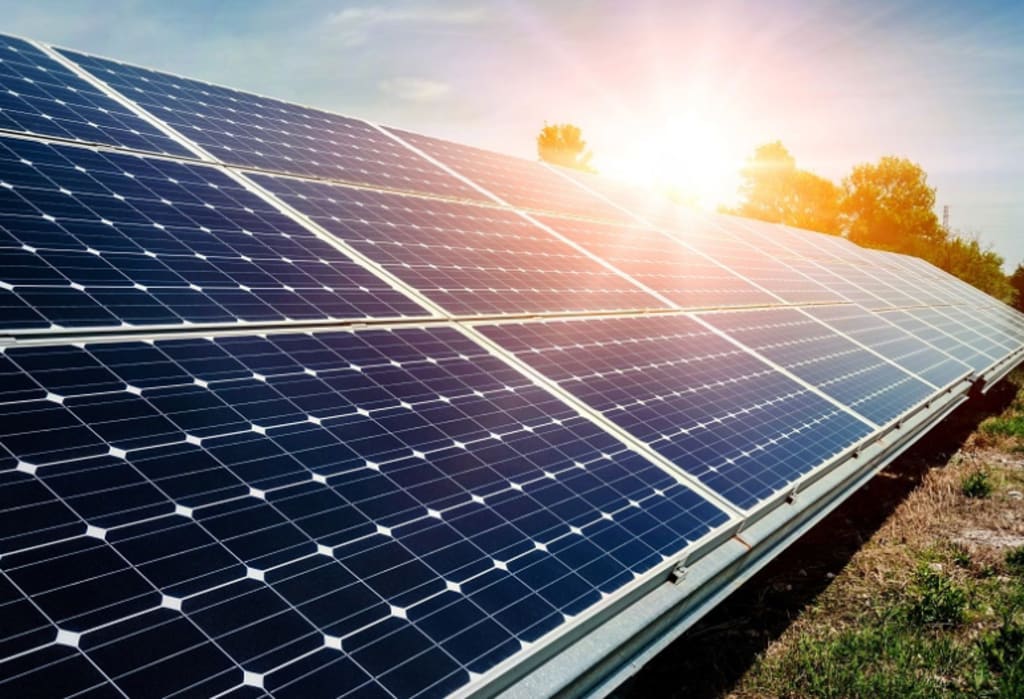Slow Down, Clean Energy
Clean Energy just might be progressing a little too fast.

It’s 2018, an age of progression and advancement. We’re experiencing a whole new era of technological innovations. Some might argue that we’re living in a second industrial revolution. As technology advances, so does its fuel.
Coal, petroleum, and oil are all things of the past. Our devices and vehicles are powered by solar energy and wind power, or at least would be, except for those horrendous fossil fuel companies, right?
Maybe not. A lot of the blame for the US’s fuel technology staggering behind its neighbors is pinned on companies like BP and Shell, both fossil fuel companies. Though in reality, it makes no sense at all for those companies to switch over and fuel our growing society in a clean way.
It seems that only these “treacherous” companies are the only ones that are looking at the other side of the energy argument, the economic and energy-grid impact.
According to SourceWatch, the coal industry alone employs about 174,000 workers, or a little over three Greenlands. Granted, their population isn’t much to boast, but that really sheds some light on our coal industry, wouldn't you say?
Not to mention, other than massive job loss for the country, there’s even more fiscal burdens from switching over for those companies. Companies like BP and Peabody Energy have no rewards or incentives to make such a drastic change. Ultimately it might be good in the long run for those companies, though as of now, revenue is at stake.
For instance, Shell Energy is worth $300 billion+ as of 2018 and is one of the top five revenue earning companies in the world.
Granted, their prime clean energy competitor, Canadian Solar Inc. is the third most revenue earning company in the world, according to the International Energy Agency, so what’s the harm?
Canadian Solar Inc. had nothing to lose by crating a solar power providing company. Companies like Shell already had a foothold and can’t open new clean energy branches without sustaining their fossil fuel providing jobs. It’s an unfortunate reality, but as of now, fossil fuels are a necessary evil for companies and people alike.
But believe me, there’s so much more than just the fiscal burden on companies and the nation alike. A lot of people are still very close minded to clean energy systems. Take solar energy as an example.
Below, you see a duck curve graph, which displays the demand for energy at certain times of the day.
Solar Energy Duck Curve

Duck Curve Energy Graph from Vox
I understand this might look like a nightmare straight out of a college math course, but essentially this Duck Curve chart displays the demand for energy. Essentially, the need for energy fluctuates throughout the day, peeking at night, and dropping at around 2 PM. Unfortunately, solar energy relying on the environment, which also fluctuates, causes the availability of solar energy to rise and drop accordingly. Now let’s take a look at a solar energy availability graph.
Solar Availability Graph

Solar Energy Availability, from Euan Mearns
From this graph we can see that the availability for solar energy peaks almost exactly at 1PM, only an hour away from when energy demand is at its lowest point. You can easily see that as availability for solar energy rises, the demand drops, and vice versa. You can see why this is a problem, right?
As many might claim, a battery can fix all of that, storing energy from the day to use at night, which is definitely true, but brings us back to the environmental clause that’s been used to antagonize energy companies in the first place.
Batteries do still solve the energy grid problem, but need to be replaced. And if not properly disposed, which is unfortunately quite common, the environmental impacts can be detrimental.
I think we can accept that there are more practical solutions out there. We don’t need solar energy to completely carry the clean energy industry on its shoulders. What about wind turbines?
To be honest, there are not a whole lot of reason to outright disregard it like solar energy, but it has its problems. The environmental clause, used to disregard the fossil fuel argument, also includes the harm caused to animals as result of pollution.
According to the National Audubon Society, around 326,000 birds die every year from wind turbines. Again, not a strong argument against it, but it’s something to consider if you strongly believe that air pollution is the burden of our environment as a knife is to someone's chest.
How about hydroelectric power plants? Over 100,000 fish die a day in the Columbia River just from hydroelectric power plants. Oil pollution, on the other hand, kills at a much slower rate.
Don’t forget to mention that the river hotspot of the US is located in the center of the US, near the Mississippi river and Missouri River, which also have a very low demand for energy compared to their coastal counterparts.
Energy Demand Across the US

Picture from Union of Concerned Scientists
I think we all know the problem with nuclear energy and its unreliabilty. I shouldn’t have to explain why they’re so bad, but in short, an accident at a nuclear power plant can leave lasting radiation effects on the environment around it for decades or even centuries.
Now that we’ve singled out hydroelectric power plants, nuclear energy, and solar energy, our best bet is to create our energy through aquatic and land air turbines.
While we now know the troubles and impracticality of both hydroelectric facilities and solar panels, that doesn’t make up for the fiscal burden on job providing energy companies. Maybe one way we can incentivize their switch is with tax breaks for opening clean energy branches, but that’s a whole different conversation.
For now, we need to recognize the flaws of the clean energy industry and expand accordingly.
And please, keep in mind, shutting down our fossil fuel providing companies, or forcing a switch, will cause more harm than good.
About the Creator
Joseph Duran
Deeply politically invested and hard set on exploring every possible dimension of an issue.






Comments
There are no comments for this story
Be the first to respond and start the conversation.